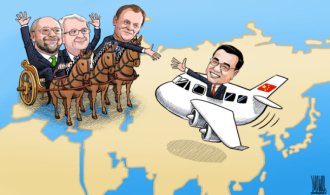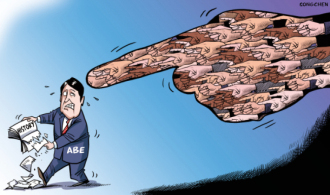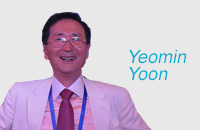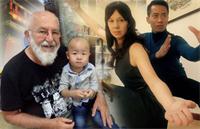Poisoning of Taiwan's politics
(China Daily) Updated: 2016-03-01 09:18
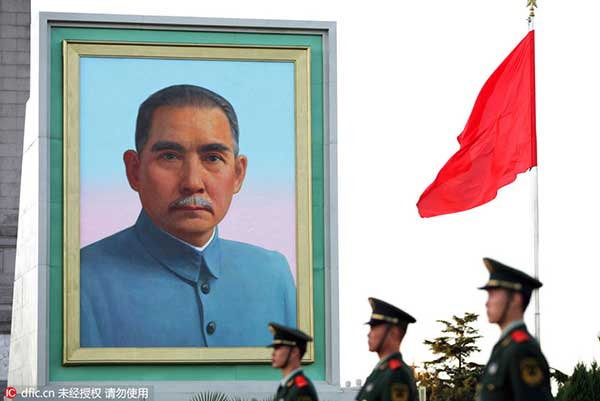 |
|
Chinese paramilitary policemen stand guard in front of a huge portrait of Chinese revolutionary pioneer Sun Yat-sen, at the Tian'anmen Square in Beijing, Oct 1, 2015. [Photo/IC] |
In the countdown to when newly elected Taiwan leader Tsai Ying-wen is due to take office in May, separatists on the island seem to be accelerating their activities aimed at "de-sinification".
On Sunday morning, the 69th anniversary of Taiwan's blood-shedding "Feb 28 Event", petrol bombs were thrown into the square in front of the Kuomintang headquarters. This occurred the day after a number of bronze statues of former leader Chiang Kai-shek were sprayed with paint.
Though the Chiang-led Kuomintang turned Taiwan into an economic success after Chiang and his followers fled there from the mainland, the political environment he and his son and successor Chiang Ching-kuo forged has fostered the forces in the island that are intent on not only confronting Beijing but also taking steps toward "de-sinification" to remove all the heritage the Kuomintang painstakingly cultivated of its roots.
Lee Teng-hui, who was deeply trusted by the younger Chiang, even claimed he was Japanese after retiring from the posts of Kuomintang chairman and the leader of "Republic of China".
Chiang Kai-shek was once the leader of China, but he and his party lost the mainland. His successors are now "losing Taiwan".
However, "Taiwan independence" is a dose of poisonous medicine for the island, and any self-crippling political attempt will only create serious political uncertainties for it.
After winning the election, Tsai Ying-wen from the pro-independence Democratic Progressive Party has refrained from commenting on "Taiwan independence", but she has also maintained an ambiguous stance on sensitive political problems. The extremist activities staged by Taiwan separatists after her election have raised the question of where she intends to lead Taiwan, and whether she has an ability and willingness to put a brake on "Taiwan independence" activities.
